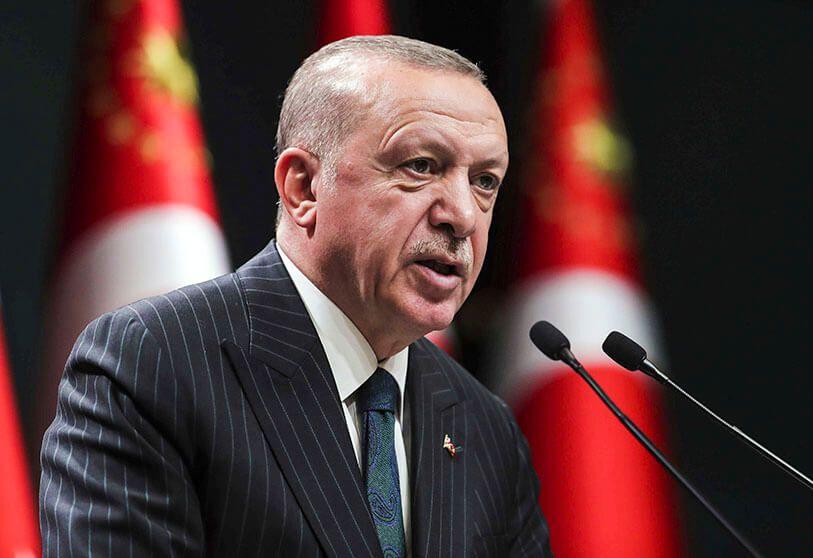Turkey’s local elections, on Sunday d, dealt the biggest blow, in more than two decades, to President Recep Tayyip Erdogan and his ruling AKP party.
Here are five things to know about the poll that turned into a debacle for the country’s veteran leader.
More than a local poll
By putting all his effort into campaigning for his party’s candidates for mayors, Erdogan gave the election a national importance and made it a de facto referendum on him and his party.
This was particularly true in Istanbul, the country’s megapolis and economic powerhouse where Erdogan began his political career and that he desperately wanted to recapture from the opposition.
The voters’ response was clear — the ruling party not only failed to regain control of Istanbul and the capital Ankara from the opposition but also lost ground in the country’s other major cities, including in the conservative Anatolia region, which had been considered an AKP stronghold.
“The biggest election defeat of Erdogan’s career”, is how Berk Esen, a political scientist at Sabanci University, described the election, in which the main opposition CHP party scored “its best result since 1977”.
Economic problems
The election took place against a bleak economic background — 67 percent inflation and massive devaluation of the lira, which has deeply impacted the lives of most Turks.
“When Turkish people vote, the situation in the kitchen or on their plate changes the voting trend,” Ali Faik Demir, a political scientist at Galatasaray University, told AFP.
The most significant voting changes occur “when we cannot afford a living when we cannot eat”.
Istanbul
“Whoever wins Istanbul, wins Turkey,” Erman Bakirci, a pollster from Konda Research and Consultancy, recalled Erdogan once saying.
Turkey’s economic powerhouse is the mythical city straddling Europe and Asia, making up 30 percent of the country’s gross domestic product (GDP). With 16 million residents, it has nearly a fifth of the national population.
“It’s not easy to govern Istanbul, a city more populous than 20 countries in the European Union,” said Aylin Unver Noi, a professor at Istanbul’s Halic University. “It’s a hub, a commercial, financial and cultural centre. It’s a country”, she said, adding that “those who manage to govern this city and prove themselves there” open the way to a national platform.
Erdogan has embodied this — he grew up in Istanbul and became mayor in 1994, starting a career that propelled him to the country’s top positions.
Erdogan’s decline?
Erdogan has been in power in Turkey since 2003 when he assumed the post of prime minister. He was elected president in 2014 and re-elected twice since, most recently in 2023.
During his time at the top, he survived many crises, including massive opposition protests in 2013 that swept across the vast majority of the country and a coup attempt in 2016.
Some analysts had already suggested that losing Istanbul and the capital Ankara to the opposition in the last municipal polls in 2019 signalled a turning point in the fortunes of Erdogan and his party. The huge blow dealt this time around could prove fatal, some observers have said.
Before Sunday's election, Erdogan had indicated that the 2023 election, in which he was re-elected president with 52 percent of the vote, would be his final one.
Bayram Balci, a researcher at France's Sciences Po University, believes this outcome is now almost certain.
“He is capable of a surprise and choosing to end his career,” he said. It would be “a way to leave with distinction, while still staying true to his vision of Islam and his religious beliefs, which dictate that nothing on this earth is permanent”.
Could Imamoglu become president?
Following another substantial win against Erdogan's governing party, Istanbul Mayor Ekrem Imamoglu has solidified his position as a leader within Turkey's notoriously divided opposition.
He possesses the stature, popularity, media savvy, and, above all, ambition.
In the lead-up to Sunday's vote, Erdogan continued to assert that Imamoglu — whose name he seldom mentioned — was a “part-time mayor” driven by presidential aspirations.
The same accusation has been made by his rivals within his own CHP party.
However, since his initial victory in 2019, he has encountered legal issues that could tarnish his political future.
In 2023, an Istanbul court determined that a remark made by Imamoglu to reporters, in which he referred to city election officials as “idiots,” was defamatory and sentenced him to nearly three years in prison.
This barred him from engaging in politics for the duration of the sentence.
Imamoglu has filed an appeal, allowing him to continue serving as mayor while entrusting his fate to judges whose impartiality he has questioned.
It remains uncertain how the case against him will unfold leading up to the next presidential election in Turkey, scheduled for 2028.
AFP



